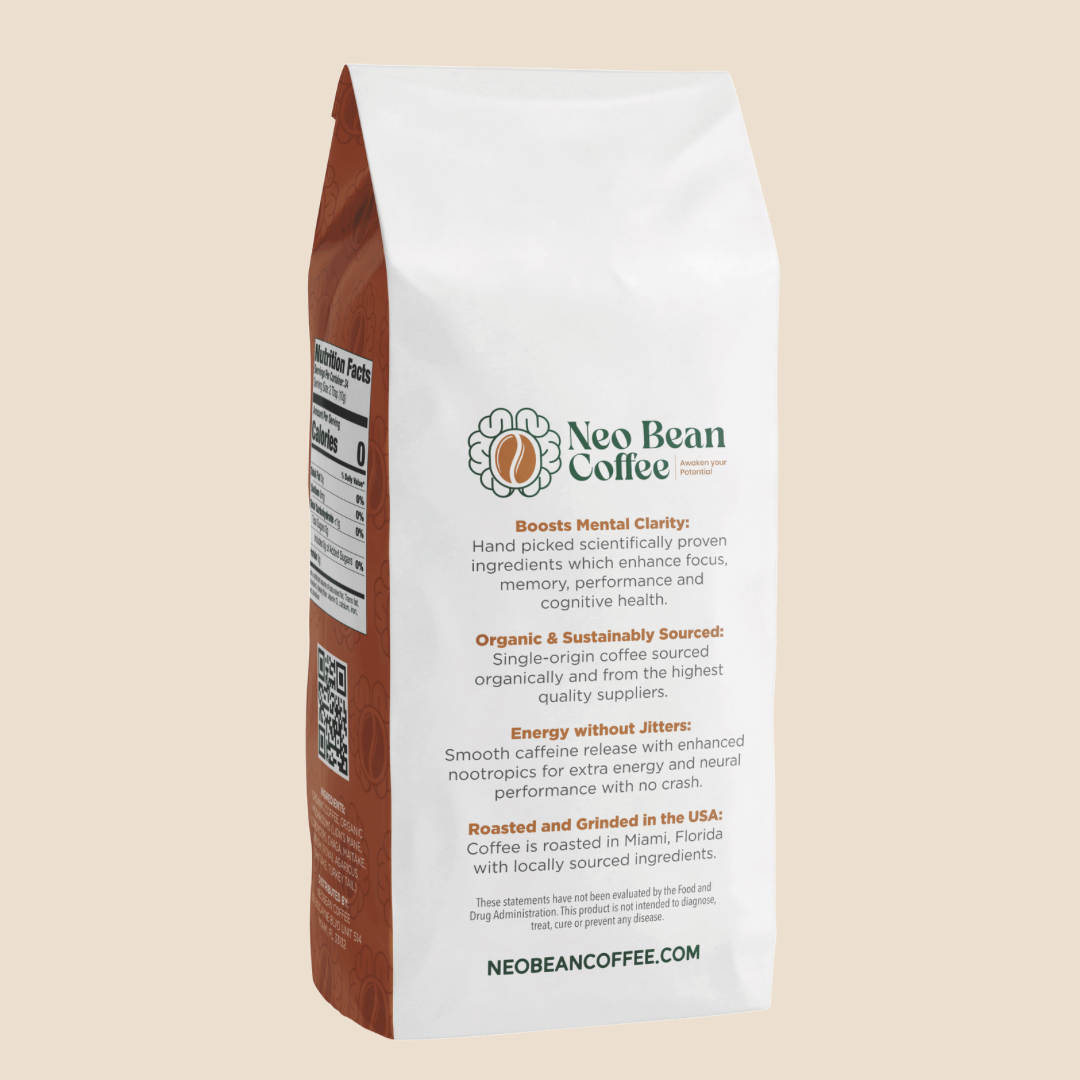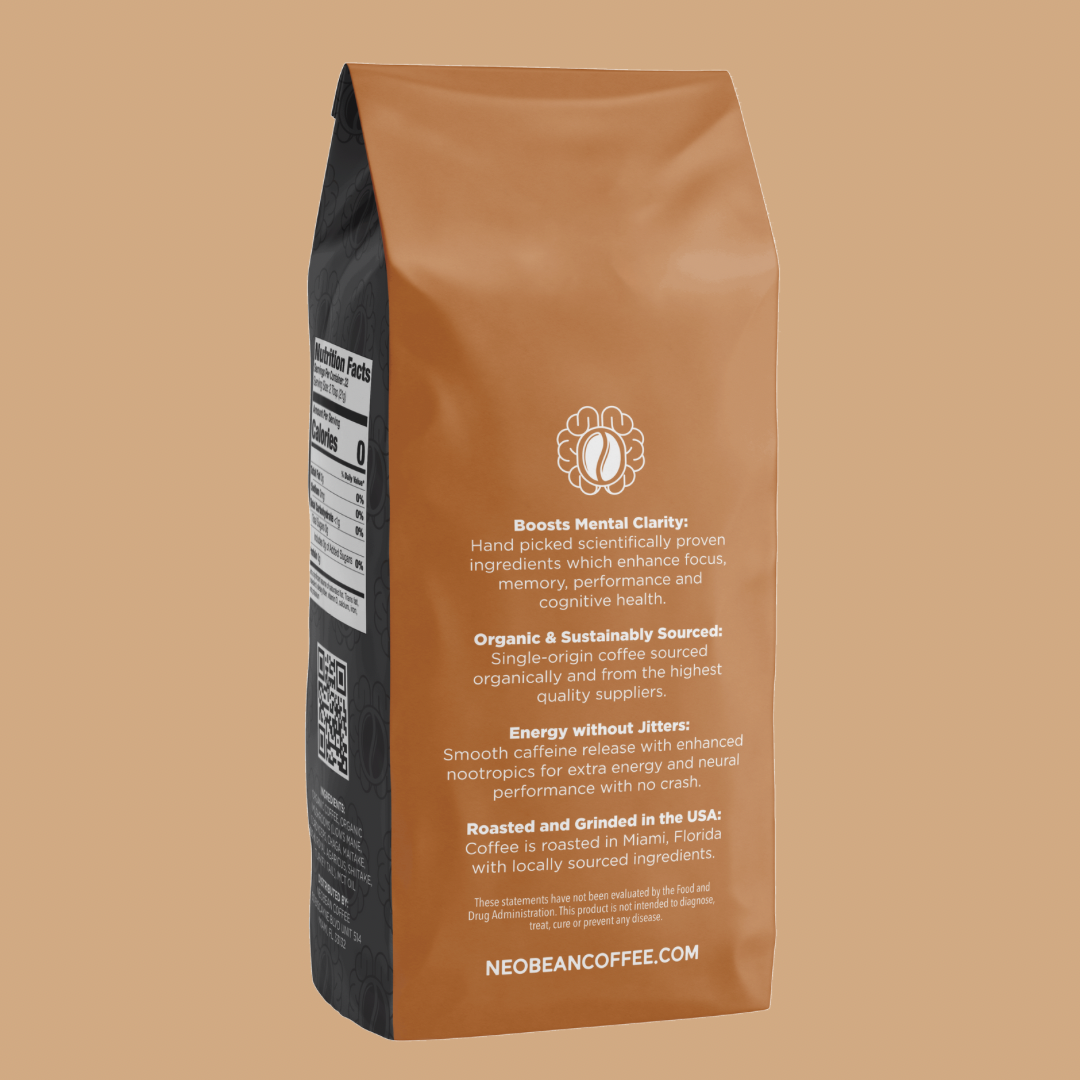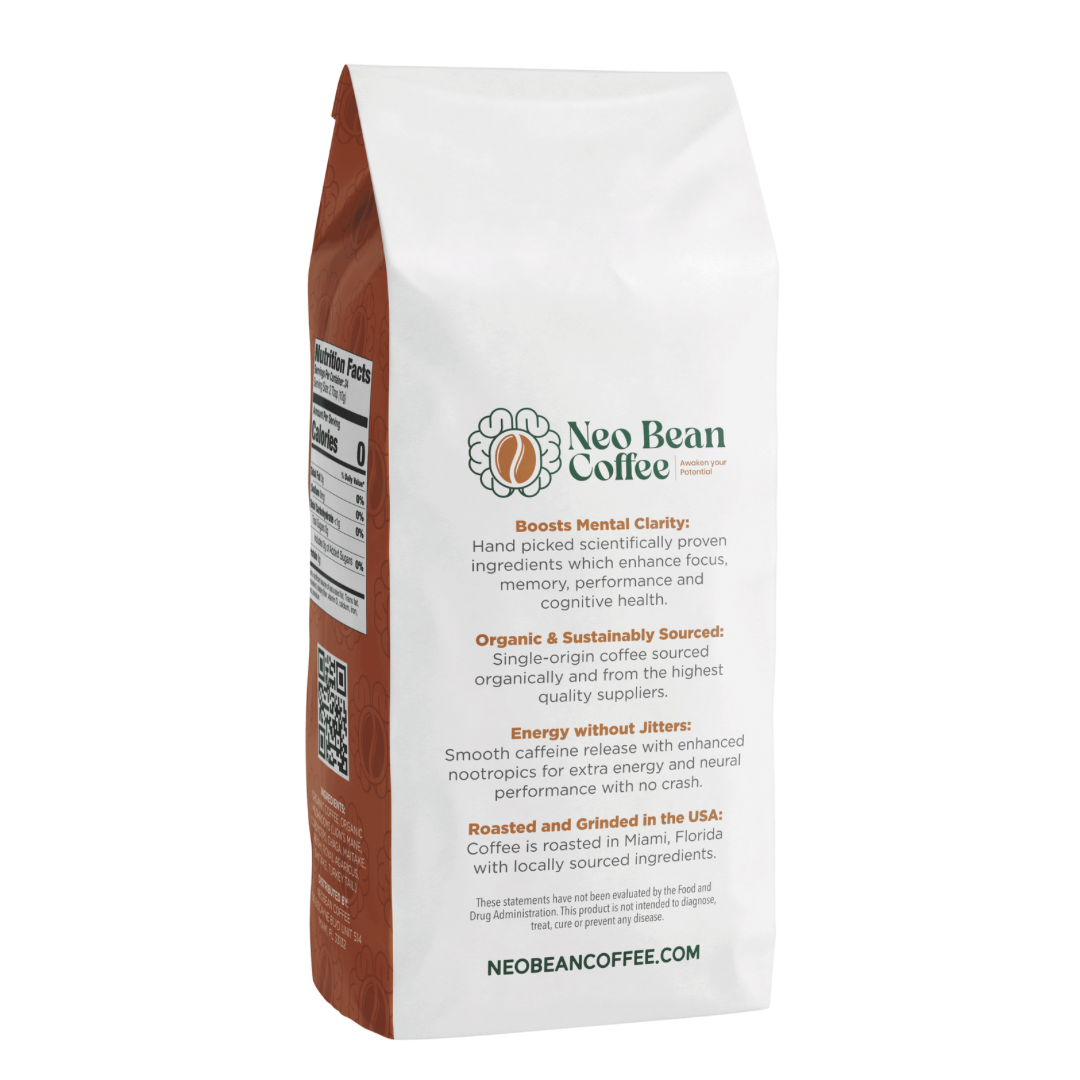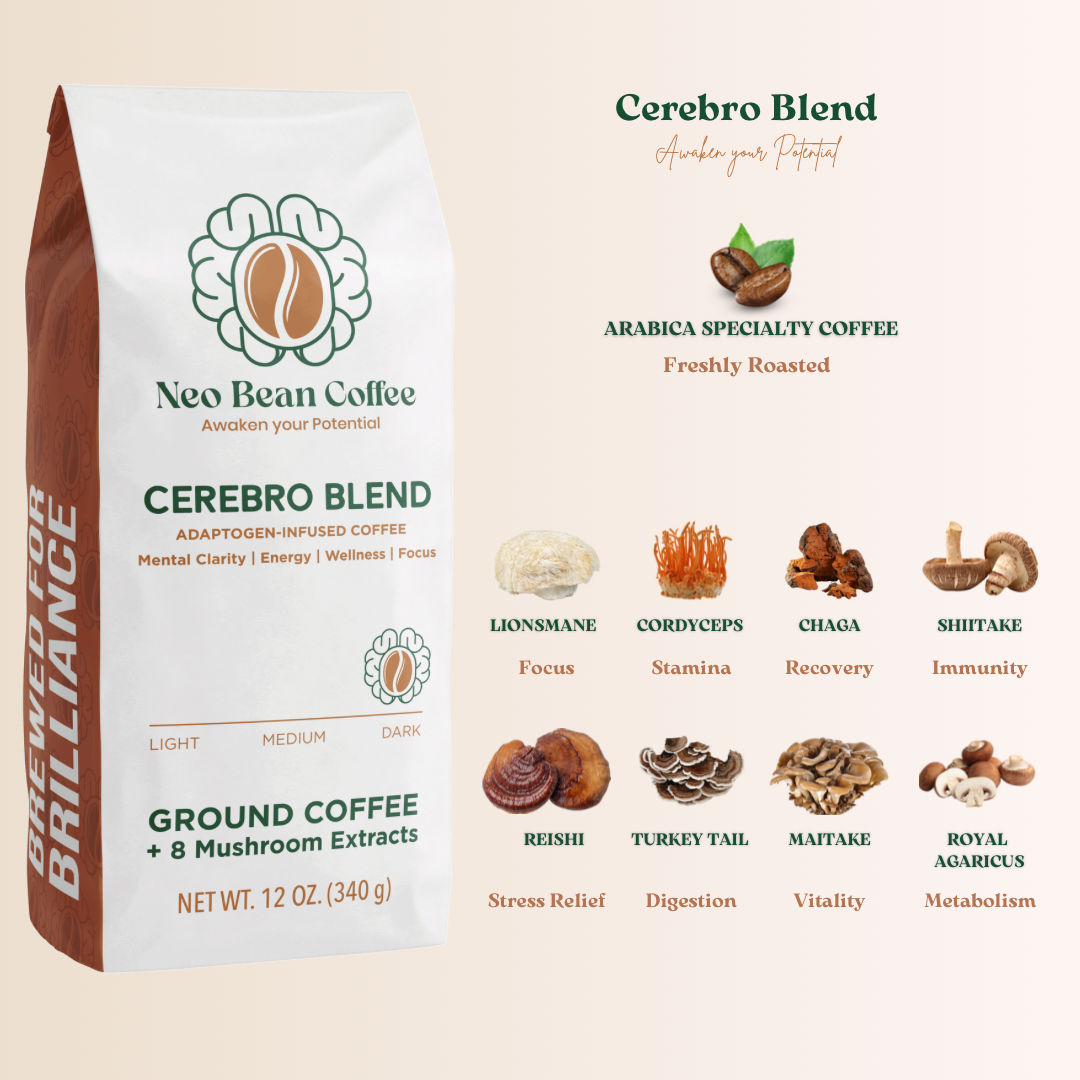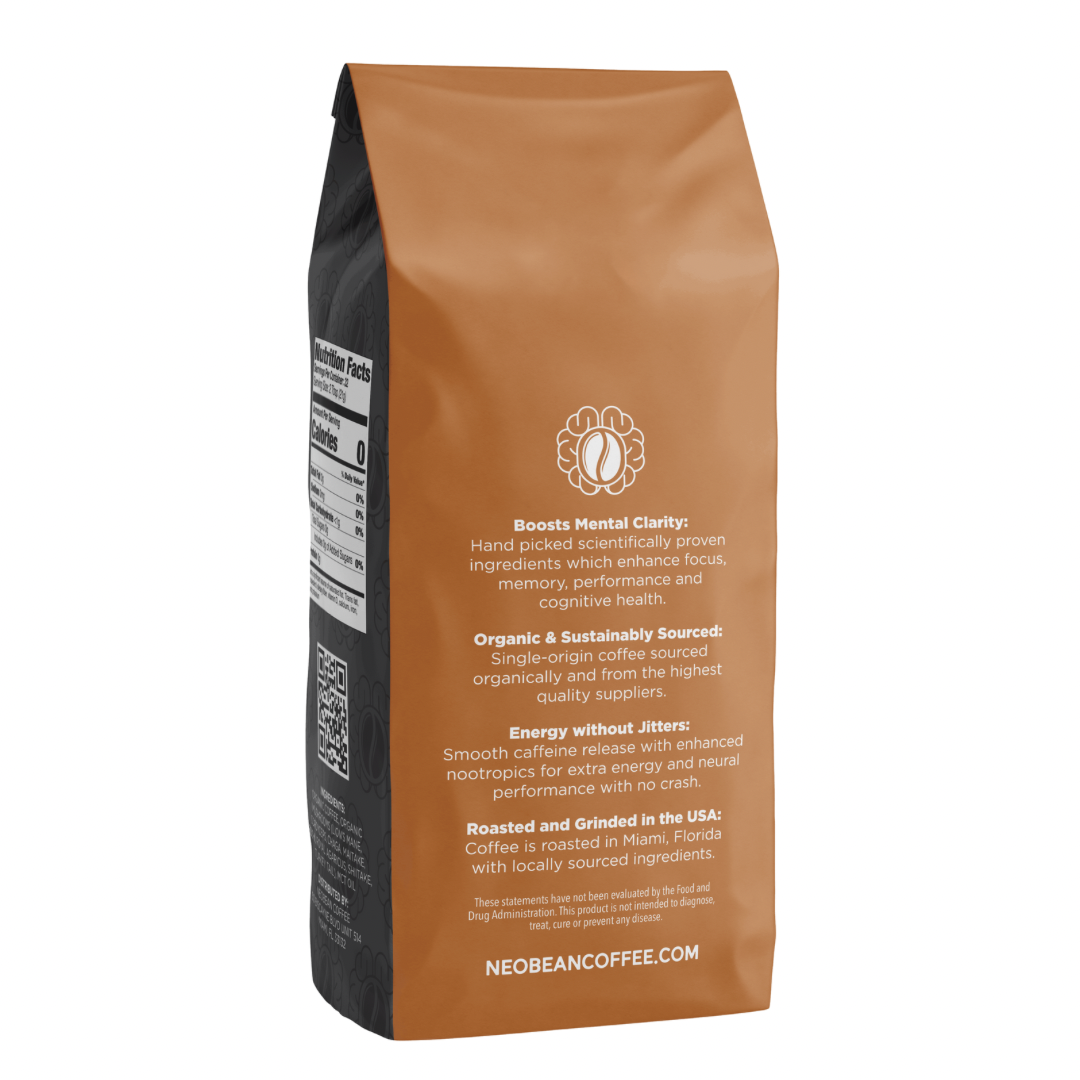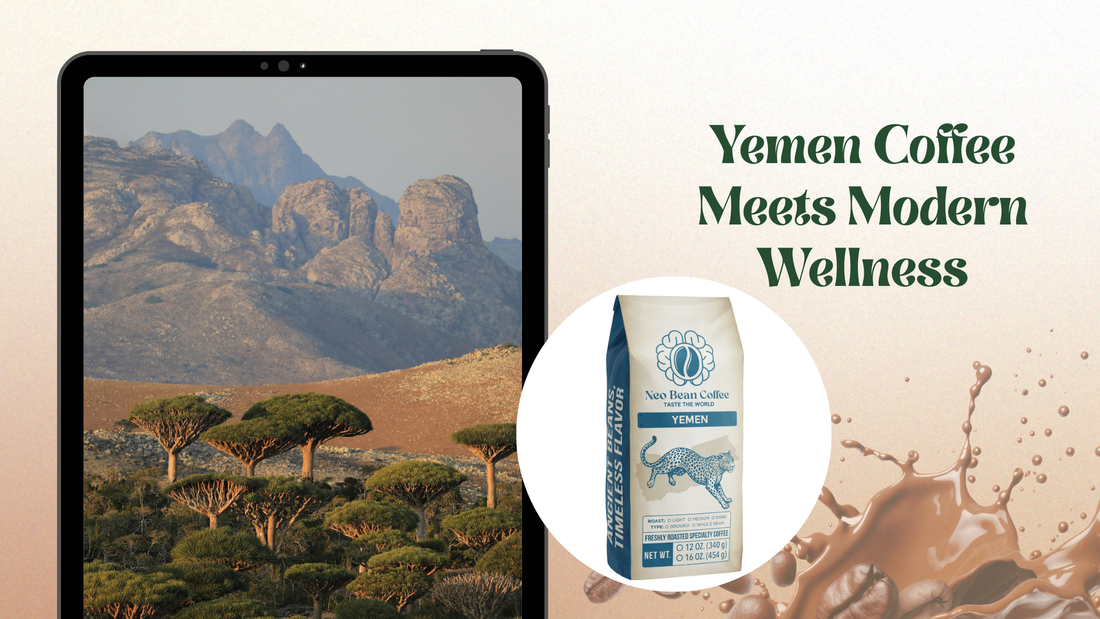
The Original Cup: Exploring Yemen’s Legendary Role in Specialty Coffee
Share
Before there were lattes, flat whites, and mushroom-infused brews, there was Yemen.
Tucked into the rocky, terraced highlands of the Arabian Peninsula, Yemen isn’t just a coffee origin—it’s the coffee origin.
At NeoBean, we’re all about honoring the roots of specialty coffee while adding modern wellness innovation. That’s why we’re spotlighting Yemen, a place where coffee cultivation is both ancient art and living heritage.
Here’s everything you need to know about Yemen’s incredible impact on your daily cup—and why its beans are some of the most sought-after in the world.
Yemen: The Birthplace of Coffee Culture

While coffee as a plant (Coffea arabica) originated in Ethiopia, it was Yemen that first commercialized, exported, and ritualized coffee drinking as we know it today. As early as the 15th century, Sufi monks in Yemen were brewing coffee to stay alert during long prayers—a tradition that laid the groundwork for global coffee culture.
By the 16th century, Yemeni ports—especially Mocha (Al-Makha)—became central to the global coffee trade, shipping beans across the Ottoman Empire, Persia, and Europe.
Fun Fact: The term “mocha” comes from the port of Mocha, not the chocolatey coffee drink. The region’s beans were so prized, they became synonymous with excellence.
Yemen’s Extreme Terroir = Exceptional Flavor
Yemen’s specialty coffee isn’t just historic—it’s unmatched in taste. That’s thanks to its:
- High-altitude farms (1,900–2,400m) on rocky terraces
- Heirloom varieties grown from ancient, unchanged seed stock
- Dry (natural) processing, sun-dried on rooftops
- Zero industrial farming – everything is hand-grown, harvested, and dried
This extreme terroir produces beans with complex, fruit-forward flavors, often described as:
- Jammy and wine-like
- Notes of dried fruit, rose, cocoa, and spice
- Bright acidity with a silky body
No two farms are the same—and that’s what makes Yemeni coffee so rare and treasured.
Flavor Profile Snapshot: Yemeni Specialty Coffee
|
Tasting Notes |
Common Descriptions |
|---|---|
|
Aroma |
Dried cherry, rose petal, cinnamon |
|
Flavor |
Red fruit, cocoa, floral honey |
|
Acidity |
Bright, wine-like |
|
Body |
Medium to silky |
|
Process |
Natural (sun-dried on rooftops) |
|
Altitude |
1,900–2,400m |
It often tastes more like a fine red wine than a typical cup of coffee.
Why Yemeni Coffee Is So Rare (and Expensive)

Yemeni coffee is prized for its flavor and history, but it’s also incredibly limited in supply due to:
- Smallholder farming on difficult, terraced terrain
- No modern irrigation—farmers rely on mountain rainfall
- Political instability and trade barriers
- Manual processing and traditional sun-drying
This means each batch of Yemeni coffee is a labor of heritage, grown slowly, traded carefully, and roasted with reverence.
The NeoBean Twist: Heritage Meets Function
At NeoBean, we believe in honoring origins like Yemen while pushing coffee into a new functional era—one that includes adaptogens, nootropics, and medicinal mushrooms for daily cognitive and immune support.
Imagine sipping a Yemen-inspired single-origin infused with 8 functional mushrooms.
It’s the best of both worlds: a heritage-rich flavor with modern wellness benefits.
"A cup that makes you feel as good as it tastes."
Yemen’s Coffee Legacy in Today’s Specialty Market
Despite its small output, Yemen continues to command attention at international coffee auctions and among elite roasters. Its beans are:
- Frequently featured in Cup of Excellence competitions
- Sold in limited micro-lots due to rarity
- Used in geisha-grade blends to add florals and depth
Yemen’s story is not one of mass production—it’s one of preservation, precision, and passion.
How to Brew Yemeni Coffee
Given its complexity, Yemen’s coffee shines in slow, intentional brewing methods like:
- Chemex – enhances florals and acidity
- Pour Over (V60) – preserves brightness and clarity
- AeroPress – brings out body and fruit
- Cold Brew – smooth and concentrated, perfect with mushroom infusions
Final Thoughts: A Sip of History
Yemen’s coffee is more than a beverage—it’s a cultural artifact, a story passed through soil and sun. In every cup, you taste centuries of tradition, resilience, and art.
At NeoBean, we’re proud to share these stories as we innovate the future of coffee—with mushrooms, nootropics, and respect for the roots that got us here.
Explore More:






